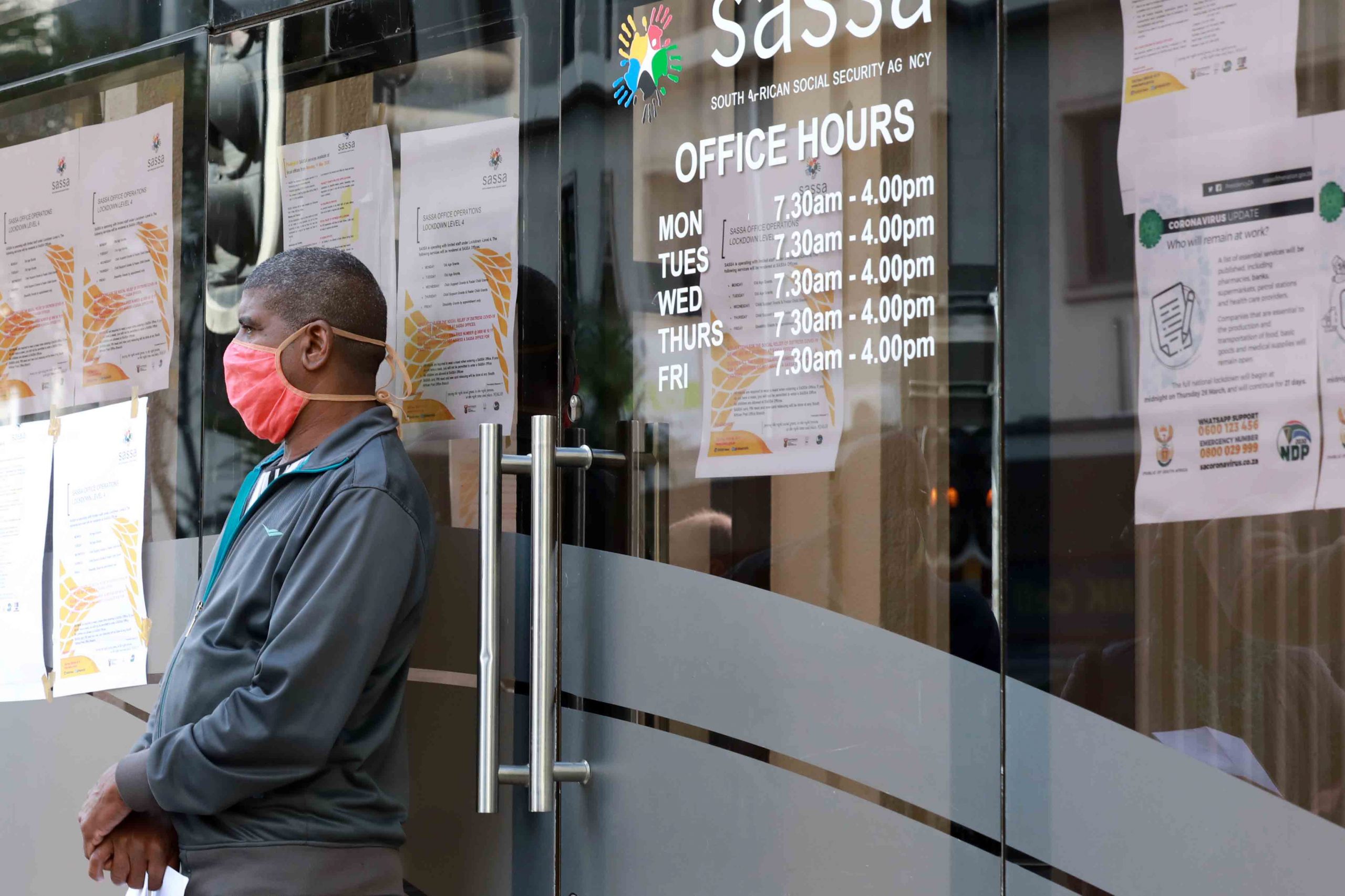What happened to the Covid-19 special grant?
The newly established grant intended to bring informal economy workers into South Africa’s social security net during the lockdown has had a disastrous start.
Author:
27 May 2020

The government’s new social relief of distress grant, which was established to protect unemployed, working-age people without any income from the worst economic ravages of the Covid-19 lockdown, appears to have had an ignominious start.
When economists at the Southern Africa Labour and Development Research Unit (Saldru) first modelled the potential impact of the new grant, it was suggested that up to 15 million people – but at least 10 million – could qualify to receive it. At the time of publishing, only nine recipients had been paid.
In the wake of this failure, the CEO of the South African Social Security Agency (Sassa), Busisiwe Memela-Khambula, issued “an unreserved apology to those inconvenienced by the slower than expected process”. On 21 May, during a virtual meeting, she told the National Assembly’s portfolio committee on social development that Sassa hoped to pay a further 11 000 grantees, whose applications were in the final stages of verification, this week.
The acting director general of the Department of Social Development, Linton Mchunu, said Sassa had “started processing” 2.6 million of the five million applications it had received for the new grant by then. He said the department “appreciates there is a need to pay as quickly as possible”, but that efforts to properly verify applicants and “avoid leakage in the fiscus so that those who are not deserving don’t get the grant” had slowed the process.
Checks and crashes
The delays in verification, which are apparently caused by having to authenticate applicants’ information in various public and private databases, are mirrored by bottlenecks at Sassa’s points of delivery. The authentication process, Memela-Khambula said, had “saved the fiscus close to R14 million”.
An initial flood of applications for the new grant crashed the agency’s WhatsApp application portal, and only a third of the ordinary foot traffic is currently allowed in Sassa offices. This has led to some beneficiaries sleeping in queues overnight to receive their grants. Many who have applied for the new grant remain in the dark about the status of their applications after a technical glitch in Sassa’s message service meant they did not receive any notifications.
Related article:
The Covid-19 lockdown has laid waste to incomes. In the best-case scenario, according to National Treasury projections, up to three million jobs will be lost in the coming months, which is three times as many as during the 2008 financial crisis. In the worst case, job losses could be as high as seven million.
Along with changes to the child support grant, the Covid-19 social relief of distress grant was designed to mitigate against the worst lockdown-induced economic shocks for impoverished households. (In May, each recipient of the child support grant received an additional R300, but those grants will now return to normal while the caregivers of the children receiving them will receive an additional R500 every month from June until October.)
Hunger relief
Before South Africa went into lockdown, eight million people were living in food poverty and could not afford their basic nutritional requirements. More than half of them were children. With incomes devastated and children no longer receiving meals at school, the lockdown was set to push that number to 13 million.
The monetary value of the Covid-19 social relief of distress grant, which is below the food poverty line and therefore not enough to satisfy the nutritional requirements of an individual, has been criticised by some non-governmental bodies.
Nevertheless, a note prepared for the rights group Equal Education by two Saldru-affiliated researchers showed that the changes to the grants system could stave off a national collapse into hunger. If properly implemented, the number of people left in extreme poverty would be 6.2 million.
Related article:
While locking an economy down proved fairly easy, restarting it is altogether more difficult. The architects of the Covid-19 social relief of distress grant have argued that the new grant is about more than sparing impoverished households the menace of hunger. They say putting money back in people’s pockets may prove crucial to stimulating economic activity.
When their applications are eventually approved, the recipients of this Covid-19 relief grant will not be paid on a particular day, as is the case with other grants. Rather, they will be paid upon approval of their application. They will also not necessarily receive the grant for each of the six months that it will be in operation, but only from the date of their application.


